| Click icon to download PDF |
Indonesia succeeds in RSPO certifying its first group of independent smallholders shortly after Thailand
International, Aug 29, 2013 – International scheme and multi-stakeholder organization for sustainable palm oil, the RSPO (Roundtable on Sustainable Palm Oil) recently certified the world’s second largest group of independent smallholders through its group certification in Indonesia, following its announcement in late 2012 of its first community in Thailand.
The community is based in the Indonesian province of Riau under the entity Asosiasi Petani Swadaya AMANAH, involving 349 smallholders over 763 hectares of total certified area. The certification process was guided and supported by WWF Indonesia, Carrefour Foundation International and PT. Inti Indosawit Subur.
An analysis implemented on this group’s certification clearly outlined a few distinctions before and after certification in management practices, yield and production output, decreased use of herbicide and chemicals (with the example of herbicide cost which more than halved from IDR 900.000/ha/year to IDR 400.000/ha/year after certification) and increased Fresh Fruit Bunches production (up 20% from 20 tonnes/ha/year to 24 tonnes/ha/year).
Haji Sunarno, Manager of the Amanah Association, commented: “The long term benefits of being RSPO certified are highly significant. The boost in productivity we experienced occurred during the dry season, when yields tend to be lower, which means that even with this successful result, we could have increased productivity even more if the external factors were better.”
Darrel Webber, RSPO’s Secretary General commented: “The world’s largest producer of palm oil, Indonesia should be commended as it encourages more smallholders to come into the sustainable sphere. In Indonesia, smallholders account for more than 40% of national palm oil production. There is increasing awareness on the advantages of being RSPO certified which includes access to international markets, longer-term efficiencies in terms of yield and productivity, as well as better cost management.”
Dr. Efransjah, CEO of WWF-Indonesia, explained: “WWF-Indonesia sees independent smallholders as an important part of Indonesia’s palm oil industry. It is our belief that RSPO certification programs, like the one that the Amanah Association joined, will stand out as a good example of sustainable practice for palm oil plantation and will serve as a model to be adopted by other independent smallholders.”
The RSPO has made some firm commitments in fortifying certification amongst smallholders’ through strategic initiatives, such as the RSPO Smallholders Support Fund (RSSF), the Smallholder Green Certificate, the RSPO Smallholders Linking and Learning platform and the continuous improvements on RSPO Standard for Group Certification and RSPO Smallholders’ Membership Fees, as communicated on RSPO’s recent press release https://rspo.org/news_details.php?nid=184.
15% of world’s palm oil production is now RSPO certified
The current estimated annual production capacity of RSPO-certified sustainable palm oil is 8.6 million metric tons, approximately 15 percent of global crude palm oil. Spread over 2.4 million hectares of certified area, about 46.8% of the world’s current RSPO-certified sustainable palm oil production capacity comes from Indonesia, followed by 45.3% from Malaysia, and the remaining 7.9% from Papua New Guinea, Solomon Islands, Brazil, Thailand, Colombia and Ivory Coast.
About RSPO
In response to the urgent and pressing global call for sustainably-produced palm oil, the Roundtable on Sustainable Palm Oil (RSPO) was formed in 2004 with the objective of promoting the growth and use of sustainable oil palm products through credible global standards and engagement of stakeholders. The seat of the association is in Zurich, Switzerland, while the secretariat is currently based in Kuala Lumpur with a satellite office in Jakarta.
RSPO is a not-for-profit association that unites stakeholders from seven sectors of the palm oil industry – oil palm producers, palm oil processors or traders, consumer goods manufacturers, retailers, banks and investors, environmental or nature conservation NGOs and social or developmental NGOs – to develop and implement global standards for sustainable palm oil.
Such multi-stakeholder representation is mirrored in the governance structure of RSPO such that seats in the Executive Board and project-level Working Groups are fairly allocated to each sector. In this way, RSPO lives out the philosophy of the “roundtable” by giving equal rights to each stakeholder group to bring group-specific agendas to the roundtable, facilitating traditionally adversarial stakeholders and business competitors to work together towards a common objective and make decisions by consensus.
Keep reading
Terms of Reference for Consultant Support of the Grower Incentives Task Force (GITF) for the Implementation of Resolution GA21-2d

Operational Requirements in prisma
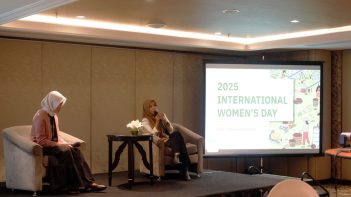
Championing Women Leaders in Sustainable Palm Oil: A Conversation with Rukaiyah Rafik
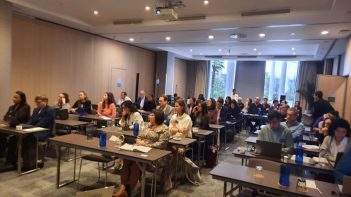
Europe’s Robust CSPO Uptake and EUDR Spotlighted at Fourth RSPO Members Meet Up in Madrid
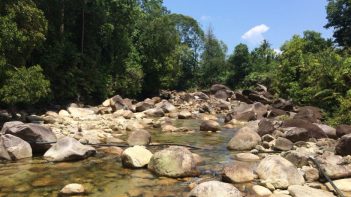
Who Pays for Conservation?
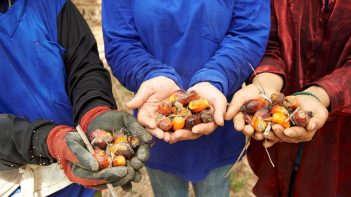
Shared Responsibility Scorecard: Leading North American Companies Show Top Marks
[Extended] Call for Applications to Become RSPO Endorsed Training Providers (ETPs)
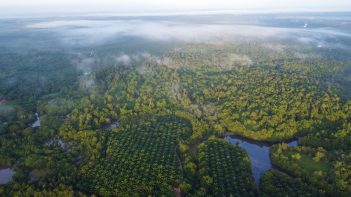
Important Updates for RSPO Certification Bodies (CB), Accreditation Body (AB), Endorsed Trainers (ET) and Members




